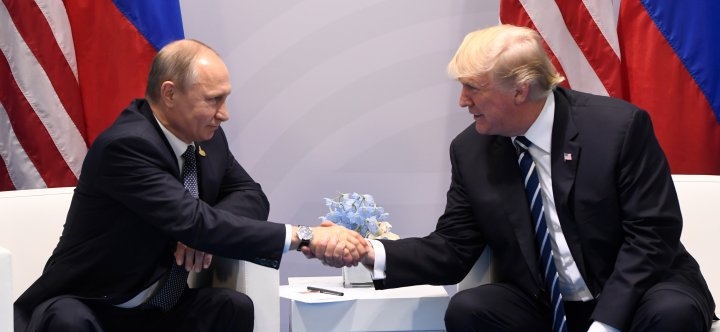US sanctions on Russia?
July 27, 2017 | Expert Insights

Congressional Republicans and Democrats have reached an agreement on the sanctions that US would impose on Russia.
Russia stands accused of interfering in the 2016 US presidential elections.
Background
The consensus among the intelligence agencies in the US is that Russia conducted an “influence” campaign to harm Hillary Clinton’s presidential bid. Russia is said to have hacked the servers of the Democratic National Committee (DNC) and the personal email account of John Podesta, the chairman of Hillary Clinton’s campaign. The data obtained from these hacks were allegedly forwarded to Wikileaks.
Russian President, Vladimir Putin has repeatedly denied Russia’s involvement in the matter. US President Donald Trump has been enigmatic with his views. He has stated that other countries could also be involved. Meanwhile, Trump has tried to pursue warmer relations with Putin.
There is a Department of Justice (DoJ) investigation into whether members of the Trump campaign colluded with Russia.
Analysis
The US House of Representative overwhelmingly voted for the sanctions. The bill also imposes sanctions on Iran and North Korea as well. The final tally of the vote stood at 419-3. The sanctions target Russian energy, financial, railways, shipping and metals and mining sectors. It also gives Congress new veto power to block any easing of those sanctions – thus undercutting the president’s power.
The bill has reached the president’s desk for approval. The White House so far has given mixed signals as to whether it will be supporting the bill. However, Sarah Huckabee Sanders, the Deputy White House Press Secretary has hinted that Trump will likely sign it into law.
Even though the bill is popular among US lawmakers, it is a cause for worry among European Union nations. EU has issued a stern warning to the US over imposition of these sanctions. It notes that these sanctions would be detrimental to businesses from the EU region.
Konstantin Kosachyov, chairman of the international affairs committee in Russia’s upper house of parliament took to Facebook to comment on this bill. He said that Russia should prepare a response that is “painful for the Americans.”
Assessment
Our assessment is that Donald Trump finds himself in a tough position. Given the nature of the ongoing DoJ investigation, he would not want to come across looking like he is working for Russian interests. However, signing the bill would mean tense relations with Russia and the European Union.








Comments